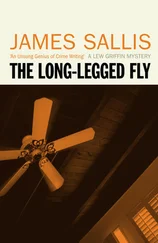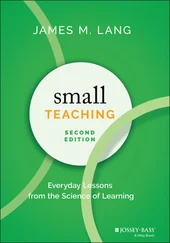James Long - Sixth Column
Здесь есть возможность читать онлайн «James Long - Sixth Column» весь текст электронной книги совершенно бесплатно (целиком полную версию без сокращений). В некоторых случаях можно слушать аудио, скачать через торрент в формате fb2 и присутствует краткое содержание. Город: London, Год выпуска: 2018, Издательство: Endeavour Media, Жанр: Шпионский детектив, Триллер, на английском языке. Описание произведения, (предисловие) а так же отзывы посетителей доступны на портале библиотеки ЛибКат.
- Название:Sixth Column
- Автор:
- Издательство:Endeavour Media
- Жанр:
- Год:2018
- Город:London
- ISBN:нет данных
- Рейтинг книги:4 / 5. Голосов: 1
-
Избранное:Добавить в избранное
- Отзывы:
-
Ваша оценка:
- 80
- 1
- 2
- 3
- 4
- 5
Sixth Column: краткое содержание, описание и аннотация
Предлагаем к чтению аннотацию, описание, краткое содержание или предисловие (зависит от того, что написал сам автор книги «Sixth Column»). Если вы не нашли необходимую информацию о книге — напишите в комментариях, мы постараемся отыскать её.
Sixth Column — читать онлайн бесплатно полную книгу (весь текст) целиком
Ниже представлен текст книги, разбитый по страницам. Система сохранения места последней прочитанной страницы, позволяет с удобством читать онлайн бесплатно книгу «Sixth Column», без необходимости каждый раз заново искать на чём Вы остановились. Поставьте закладку, и сможете в любой момент перейти на страницу, на которой закончили чтение.
Интервал:
Закладка:
The whole process, from the sausage rupturing to the engine stopping, took less than a minute.
Johnny shot one horrified look at the fuel gauge, seeing it still showed plenty. Training took over. He pulled back on the yoke, climbing to convert his surplus speed into vital, life-extending height. He checked the primer was locked, felt the mixture control. No clues there, it wasn’t either of those. He switched to the other tank. Inside it, the second sausage had lasted an extra minute and a half but the fuel lines were already full of water and soon that was joined by a further three pints. He pulled carburettor heat in case it was icing in the humid air, tried cycling the magnetos. Nothing worked. In desperation he tried the starter again, but the engine stayed dead, the propeller windmilling in front of them.
From a far place he heard Heather’s voice. ‘Do you know what’s wrong?’
‘No. It’s like there’s no fuel but I know there’s plenty. Everything else seems fine. I’m working on it.’ He was going through every possible procedure for a second time as he talked.
‘I’m glad you brought the life-raft,’ said Jo, calm, almost cheerful now that there was a real problem to face. He could have hugged her.
He watched the air speed, settled it at seventy knots and trimmed the plane so it stayed naturally in a shallow dive at that speed.
‘How far can we get?’ said his father.
‘From four thousand feet? Maybe six miles.’
‘How far’s land?’
‘France is nearest. Thirty miles, maybe thirty-five.’
‘Oh dear.’
Johnny turned the radio selector to 121.5 megahertz and pressed the button to transmit. ‘Mayday, mayday. Cessna Lima Tango Kilo, engine failure thirty miles north of Cherbourg.’
Nothing happened. The radio sounded completely dead. He frowned and tried again.
‘Mayday, mayday. Cessna Lima Tango Kilo, engine failure thirty miles north of Cherbourg. Descending from four thousand feet. Intend to ditch. Four POB, including one disabled. Please respond.’
Still nothing. Had he been able to see the cable to the antenna, he would have seen that a two inch section of it had turned into a soggy blackened mess, where the acid soaked putty had done its slow job.
‘You fly it,’ said his father, ‘I can do that.’
‘Good. Just keep trying. You’re calling Distress and Diversion at West Drayton. They must be able to hear. Keep calling Mayday, don’t bother about the details until someone responds. Just say we’re a Cessna in trouble thirty miles north of Cherbourg. Someone will be hearing it even if we can’t hear them. They’ve got satellite gear that can spot a gnat in a sandstorm. They’ll find us.’
He spoke with more conviction than he felt. The engine and the radio? That was starting to feel uncomfortably deliberate. He looked down at the inevitable sea. From this height, he could just make out the French coast on the impossibly far-off horizon. No comfort there. It would have to be a ditching as near a ship as possible. He could see three, one that looked like a tanker a long way ahead, a Channel ferry to the south-west, upwind, and a big freighter of some sort to the east. A minute had gone by since the engine had stopped. They were down to three thousand two hundred feet.
He swore at himself. He’d forgotten the transponder. He fiddled the dials to the right setting and switched it to transmit. That would send out an automatic distress signal. If it was working. He pushed the uncomfortable thought away, turned to Heather and Jo behind.
‘If it won’t restart, we’re going to ditch right next to a ship. Sit tight. I’m sorry about this but we’ll be OK.’
Heather nodded, looking serious. Jo gave him a tight grin.
He turned back to the task in hand, went on sliding the throttle knob in and out, trying carb heat, magnetos, everything, hoping for a response from the engine. None came. He kept one eye on the air-speed indicator, reminding himself not to try to stretch the glide too far. Stalling would lose far more than he stood to gain. It felt like he was just prolonging the agony. In three or four minutes gravity would have its way whatever he did. The plane would reach sea level and he would have to do something he had never done before, something they couldn’t teach you at flying school, not by practice anyway, something on which three other people’s lives now depended. He strove to remember the theory. Next to him, his father was still calling ‘Mayday, mayday’ into a silent radio.
Johnny had a good memory. Unlatch the cabin doors before ditching, he remembered that from the Cessna manual. Jettison heavy objects. Jo’s wheelchair? The thought struck a chill into him. Ditching, then getting Jo out of the back seat? It had been hard enough on land. What chance did they have in the water even if he managed to pull off a gentle ditching? They were stuck with it anyway. It was out of the question to get it out of the back and through the door until they were down. The approach – did you use flaps? Yes. Ten degrees of flap and sixty knots. Sixty was going to seem bloody fast, he knew. On a calm sea it would be bad enough. This sea wasn’t calm.
Another minute had passed, down to two thousand four hundred feet now. Decision time. He thought hard and picked the freighter. It was downwind, that was one thing, also it seemed somehow less frivolous than the ferry, more likely to have good seamen on board. Was that right? How he could tell? Any decision seemed better than none so he banked into a gentle curve towards it.
It was so quiet now, just the swish of air past them and Sir Michael’s low insistent voice. He turned his head to the women in the back.
‘I’ll tell you when we’re about to touch down. Just to be on the safe side, I want you bending forward, put your head down on your crossed arms in your lap. Use your jackets to pad your face. Try to wedge the wheelchair so it doesn’t fly around.’
They nodded. He pulled the handle and pushed his door open so that the slipstream held it against the latch, then he told his father to do the same. Another minute – down to one and a half thousand feet and the freighter was close. He’d have to ditch ahead so the ship would stop as near as possible. He worried in case they weren’t keeping a good look-out but then he saw a flash of reflected sun from the bridge. Binoculars? He hoped so.
It was a big ship, fully laden with containers almost up to its bridge level. Johnny switched his gaze away and studied the sea. My God, he thought, those waves are big. Into the wind and across the waves, that was how they told you to land. These waves were going the same way as the wind. As he studied the waves he realized with complete and sickening certainty that there was absolutely no hope of pulling off a controlled textbook ditching in that heaving sea and that even if he got out, the chances of getting Jo and Heather, trapped in the back by the wheelchair, safely into the life-raft were very low indeed.
Sir Michael, who’d been staring down at the sea, shot him a worried look. Johnny grimaced. A thousand feet. Another minute, that’s all they had.
‘Not long now, get into position,’ he said. ‘I’m… I’m very sorry about this.’
‘Good luck, Johnny,’ said Heather.
‘Yeah, go for it,’ said Jo.
He started to turn into wind, taking a good look at the ship’s position, hammering towards them, down to the east, straight into the teeth of the wind.
On a calm sea it might be possible, bringing it in just over stalling speed, levelling off to flop into the water. In this sea, the chances of staying upright were zero. It was fifty-fifty for the two of them in the front seat. For Heather and Jo, survival was a long shot. He’d left the throttle wide open and the windmilling propeller, turning the engine slowly over, was – had he but known it – sucking the water slowly through the system. One pint out of the six pints queuing up in the pipes had already gone. If they’d had thirty thousand feet of height to play with the engine might in the end have laboured its way through the water back to petrol again, but they didn’t have thirty thousand feet. They had little more than five hundred feet left.
Читать дальшеИнтервал:
Закладка:
Похожие книги на «Sixth Column»
Представляем Вашему вниманию похожие книги на «Sixth Column» списком для выбора. Мы отобрали схожую по названию и смыслу литературу в надежде предоставить читателям больше вариантов отыскать новые, интересные, ещё непрочитанные произведения.
Обсуждение, отзывы о книге «Sixth Column» и просто собственные мнения читателей. Оставьте ваши комментарии, напишите, что Вы думаете о произведении, его смысле или главных героях. Укажите что конкретно понравилось, а что нет, и почему Вы так считаете.











